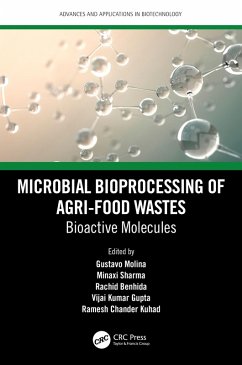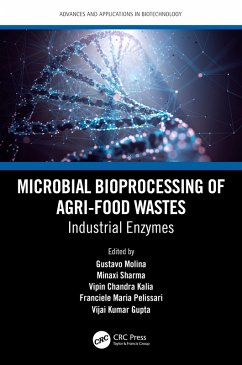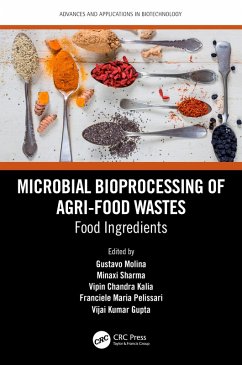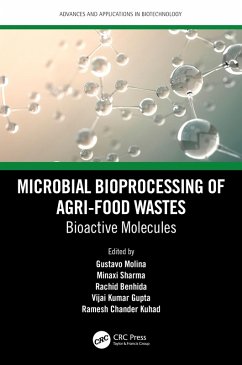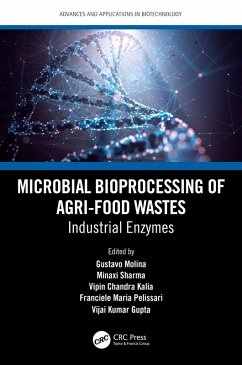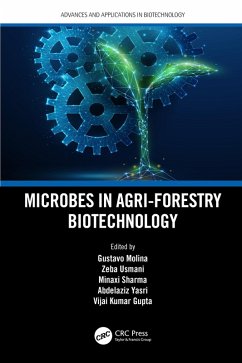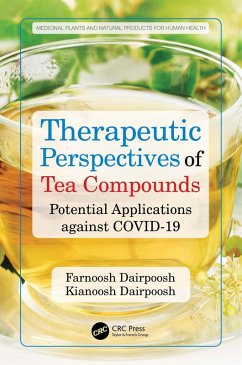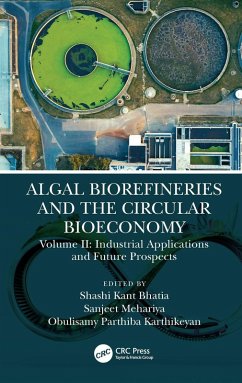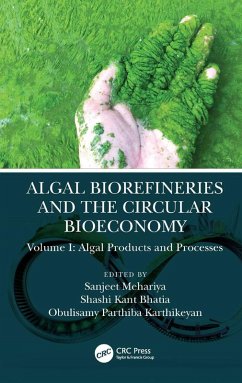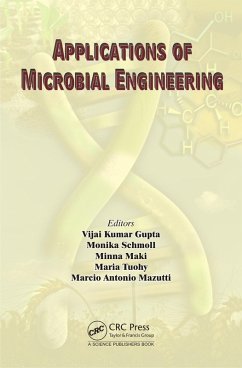
Microbial Bioprocessing of Agri-food Wastes (eBook, PDF)
Food Ingredients
Redaktion: Molina, Gustavo; Gupta, Vijai Kumar; Pelissari, Franciele; Kalia, Vipin Chandra; Sharma, Minaxi
Versandkostenfrei!
Sofort per Download lieferbar
45,95 €
inkl. MwSt.
Weitere Ausgaben:

PAYBACK Punkte
23 °P sammeln!
Food ingredients are important molecules of the most diverse chemical classes responsible for conferring nutrition, stability, color, flavor, rheological and sensorial characteristics, in addition to several other important uses in the food industry.In this way, the production routes of these ingredients have gained more and more attention from consumers and producing industries, who expect that, in addition to their technological properties, these ingredients are still obtained without synthetic means, with savings of natural resources and mainly with less environmental impact.This book is in...
Food ingredients are important molecules of the most diverse chemical classes responsible for conferring nutrition, stability, color, flavor, rheological and sensorial characteristics, in addition to several other important uses in the food industry.
In this way, the production routes of these ingredients have gained more and more attention from consumers and producing industries, who expect that, in addition to their technological properties, these ingredients are still obtained without synthetic means, with savings of natural resources and mainly with less environmental impact.
This book is intended for bioengineers, biologists, biochemists, biotechnologists, microbiologists, food technologists, enzymologists, and related professionals/ researchers.
. Explores recent advances in the valorization of agri-food waste into food ingredients
. Provides technical concepts on the production of various food ingredients of commercial interest
. Explores novel technologically advanced strategies for the extraction of bioactive compounds from food wastes
. Presents important classes of food ingredients obtained from alternative raw materials
. Presents sustainable food waste resources and management strategies
. Presents different pretreatment technologies and green extraction methodologies to support a green environment in the circular economy concept.
. Challenges in applications of re-derived bioactive compounds from food wastes in food formulations
In this way, the production routes of these ingredients have gained more and more attention from consumers and producing industries, who expect that, in addition to their technological properties, these ingredients are still obtained without synthetic means, with savings of natural resources and mainly with less environmental impact.
This book is intended for bioengineers, biologists, biochemists, biotechnologists, microbiologists, food technologists, enzymologists, and related professionals/ researchers.
. Explores recent advances in the valorization of agri-food waste into food ingredients
. Provides technical concepts on the production of various food ingredients of commercial interest
. Explores novel technologically advanced strategies for the extraction of bioactive compounds from food wastes
. Presents important classes of food ingredients obtained from alternative raw materials
. Presents sustainable food waste resources and management strategies
. Presents different pretreatment technologies and green extraction methodologies to support a green environment in the circular economy concept.
. Challenges in applications of re-derived bioactive compounds from food wastes in food formulations
Dieser Download kann aus rechtlichen Gründen nur mit Rechnungsadresse in A, B, BG, CY, CZ, D, DK, EW, E, FIN, F, GR, HR, H, IRL, I, LT, L, LR, M, NL, PL, P, R, S, SLO, SK ausgeliefert werden.




